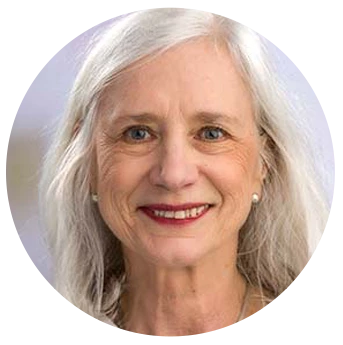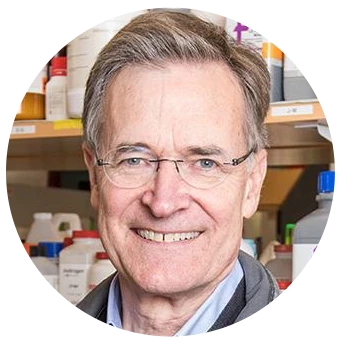
Joint meeting with HIV Vaccines
HIV Pathogenesis and Cure
June 1-4, 2021 | 9:00AM EDT | 1:00PM UTC | 3:00PM CEST*
*Program is in development and subject to change
Attention
The live portion of this conference has concluded and all presentations are now available for purchase on demand. Registrants to the live event may access this content anytime for up to 9 months following the event.
Free Access to On Demand Content to Scientists from Low-and Middle-Income Countries
Keystone Symposia welcomes the global scientific community and aims to connect researchers within and across disciplines to accelerate the advancement of biomedical and life sciences. This form may be used for scientists from low- and middle-income countries of all career stages to determine eligibility and request free access to scientific content presented during recent eSymposia events. If eligible, you will be sent an access code for the On Demand content of the eSymposia event(s) of interest.
Human Immunodeficiency Virus type 1 (HIV) is the cause of a global pandemic that has a very high mortality rate, with an estimated 35 million deaths to date. In addition, another 37 million people are currently living with HIV infection and will likely succumb from acquired immune deficiency syndrome (AIDS) without lifelong antiretroviral therapy (ART). Optimal ART can halt viral replication, thereby preventing disease progression and allowing immune reconstitution. However, ART is not curative due the persistence of a latent form of the virus. This latent form is the major barrier to cure and the subject of an intense international research effort. Along with efforts to develop an HIV vaccine, targeting the HIV latent reservoir is a major priority for AIDS research. Achieving a better understanding of the basic biology of HIV infection is likely to be essential to HIV cure efforts.
This conference will bring together scientists studying basic aspects of HIV virology as well as investigators working directly on the cure problem. Immune-based strategies to eliminate infected cells are an important component of many cure strategies, providing a logical connection to hold the joint conference on HIV Vaccines. This pairing will provide a unique opportunity to bring together basic and translational immunologists and virologists to consider the challenging goal of curing HIV infection. In addition to joint sessions focusing on exciting new developments in the study of antibody and T cell responses to HIV and novel technologies that will aid future studies of HIV biology, sessions also include basic mechanisms of HIV integration and transcriptional control, strategies for reversing latency and eliminating infected cells, and trials of novel cure strategies in animal models and in patients on ART. The goal of this conference is to bring together an amalgamation of basic and applied scientists working on functional cures and eradication of HIV in an effort to not only better understand HIV treatment strategies but also the emerging technologies and approaches that will lead to the eventual eradication of HIV from infected individuals.
Pricing:
Regular Registration Rate: $275 USD
Student Registration Rate: $150 USD
Deadlines:
Abstract Submission
‣ For Short Talk Consideration: Passed
‣ For ePoster Presentation: Passed
Final ePoster / SciTalk Submission: Passed
Financial Aid Application: Passed
*Abstract submission is required in order to submit an ePoster and/or Scitalk
#VKSHIVPath21
Keynote Speakers

M. Juliana McElrath
Fred Hutchinson Cancer Research Center

Bruce D. Walker
Ragon Institute of MGH, MIT and Harvard
Speaking at this eSymposia
Julie Ake
Walter Reed Army Institute of Research, USA
Petronela Ancuta
Centre de Recherche de l'Universite de Montreal, Canada
Dan H. Barouch
Beth Israel Deaconess Medical Center, USA
Maria J. Buzon
Vall d´Hebron Research Institute, VHIR, Spain
Paula M. Cannon
University of Southern California, Keck School of Medicine, USA
Angela Ciuffi
Institute of Microbiology - CHUV/UNIL, Switzerland
Bryan R. Cullen
Duke University Medical Center, USA
Mark M. Davis
Stanford University School of Medicine, USA
Steven G. Deeks
University of California, San Francisco, USA
Barbara K. Felber
NCI, National Institutes of Health, USA
Guillaume J. Filion
Centre of Genomic Regulation, Spain
Beatrice H. Hahn
University of Pennsylvania, USA
Reuben S. Harris
University of Minnesota, USA
Brad Jones
Weill Cornell Medicine, USA
Frank Kirchhoff
University of Ulm, Germany
Sharon R. Lewin
University of Melbourne, Australia
Marina Lusic
University Clinic Heidelberg, Germany
M. Juliana McElrath
Fred Hutchinson Cancer Research Center, USA
Beatriz Mothe
IrsiCaixa AIDS Research Institute-HIVACAT, Spain
Afam Okoye
Oregon Health & Science University , USA
Melanie M. Ott
Gladstone Institutes, USA
Rafick Sekaly
Emory University, USA
Devi SenGupta
Gilead Sciences, Inc., USA
Liang Shan
Washington University in St. Louis, USA
Robert F. Siliciano
Johns Hopkins University School of Medicine, USA
Carine M. Van Lint
University of Brussels, Belgium
Bruce D. Walker
Ragon Institute of MGH, MIT and Harvard, USA
Xu Yu
Massachusetts General Hospital, USA
Jerome A. Zack
University of California, Los Angeles, USA
The views expressed in this eSymposia are those of the participants and not necessarily of the participants’ organizations or of Keystone Symposia.
This new virtual meeting format came out of difficult circumstances, but your commitment to scientific progress is what inspired us to launch Keystone eSymposia. In these virtual meetings, we are capturing the same innovative essence of our in-person meetings that you've all created as a scientific community. Here, Debbie Johnson, our CEO, explains how we're going to do that.












